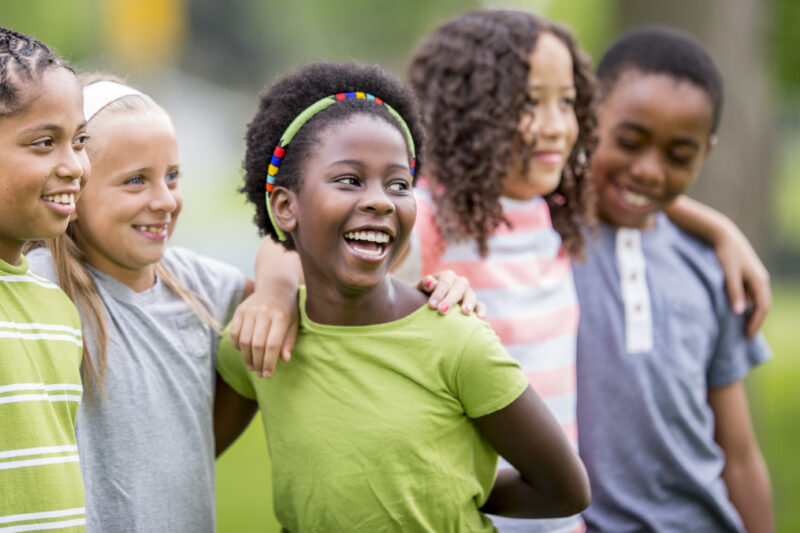 Children are curious and often have questions when they encounter people that are different from them, whether it be race, age, ability, religion, disability, gender, sexual orientation or appearance, just to name a few. It’s perfectly natural.
Children are curious and often have questions when they encounter people that are different from them, whether it be race, age, ability, religion, disability, gender, sexual orientation or appearance, just to name a few. It’s perfectly natural.
But while their questions can be embarrassing at times, it’s important to answer those questions and talk about their curiosity. They may be tough conversations to have, but it’s an essential way to help kids be inclusive of those that are seemingly (at first!) unlike them.
Akron Children’s offers 5 ways you can start these difficult conversations and teach kids to accept others and celebrate their differences, rather than criticize them.
- Knowledge is key to acceptance.
Teach kids that when they see differences, it doesn’t make a person weird; it just makes them different. Encourage kids to ask questions about differences, so they can learn from others who aren’t like them. When children understand a person’s background, where they are from and why they are different from them, it makes it easier for kids to accept a person’s differences. For example, if a child hears someone speak with an accent, explaining that other countries speak different languages due to their cultural histories and influences can help your child better understand — and accept — why that person sounds different.
- Challenge the idea of what’s “normal.”
In many cases, people are treated differently because they are seen as not “normal.” But, what’s normal? Just because your family does things a certain way and looks a certain way does not mean that is what’s normal. Everyone is born unique with different traditions, likes and preferences, so there is no one way to be “normal.”
- Don’t shy away from tough conversations.
When kids spot a difference, it’s natural for them to have questions about it to understand why someone is that way. While kids’ questions can be embarrassing, you should never ignore their curiosity. If you shut a child down for asking a question, it sends the message that it’s not acceptable to talk about someone’s differences. Instead, answer their questions honestly. It will help foster open communication about differences. If you don’t know the answer, it’s OK to say, “I don’t know. Let’s find out together.”
- Model acceptance.
Kids are listening and watching you on how to behave and will mirror your behavior — for better or worse. Be mindful about the words you choose, and if your child shares misinformation, be sure to correct it and show them how their words could hurt feelings. Modeling acceptance might begin with challenging your own biases and speaking up to those who use slurs, make fun of differences or treat someone negatively just because they are different.
- Cultivate empathy.
It can be difficult for kids to see themselves in other kids who are unlike them. To better help kids show empathy, ask questions such as, “If you had a disability, how would you want others to treat you?” Or, “If you talked differently, how would you feel if someone teased you about your accent?” When kids can empathize and get to know kids unlike themselves, it helps them better see similarities, while simultaneously accepting their differences.
There are many more ways we can teach our children tolerance and acceptance of others, such as encouraging friendships with kids of all cultural backgrounds and getting them involved in a variety of cultural activities. The more we can teach our kids about celebrating differences, the more tolerant and compassionate culture we can create for future generations.
If your child is struggling to fit in and it’s interfering with school and social activities, Akron Children’s Lois and John Orr Family Behavioral Health Center offers virtual visits. Call 330-543-5015 to schedule an appointment.










